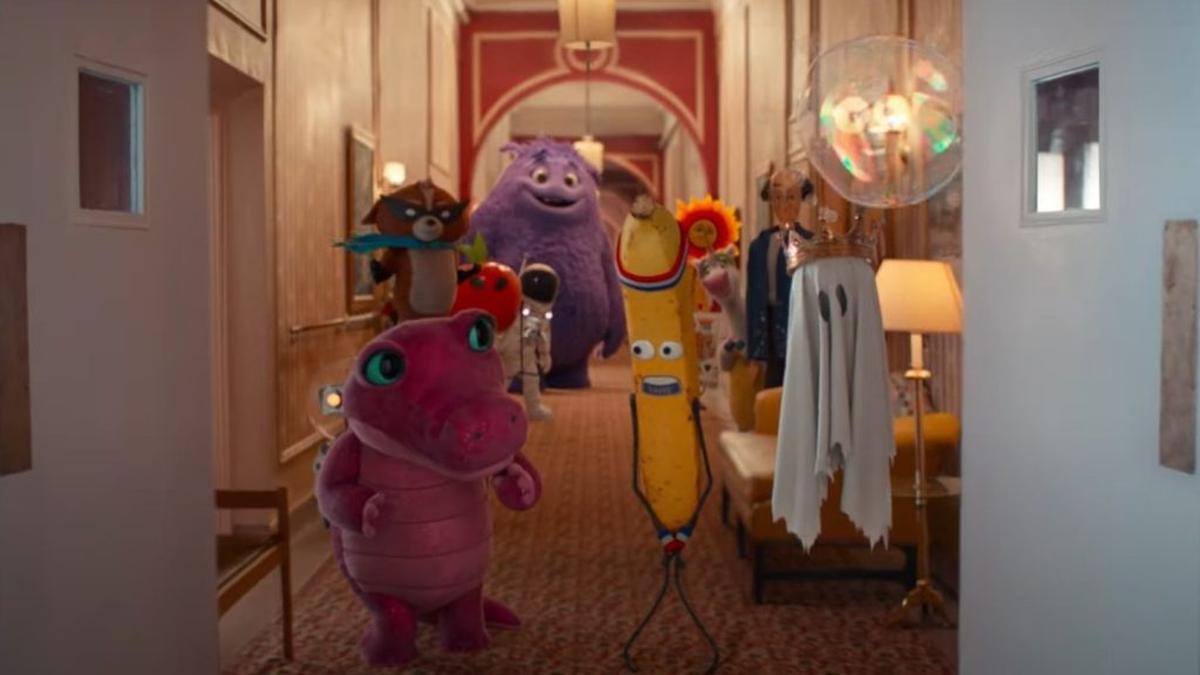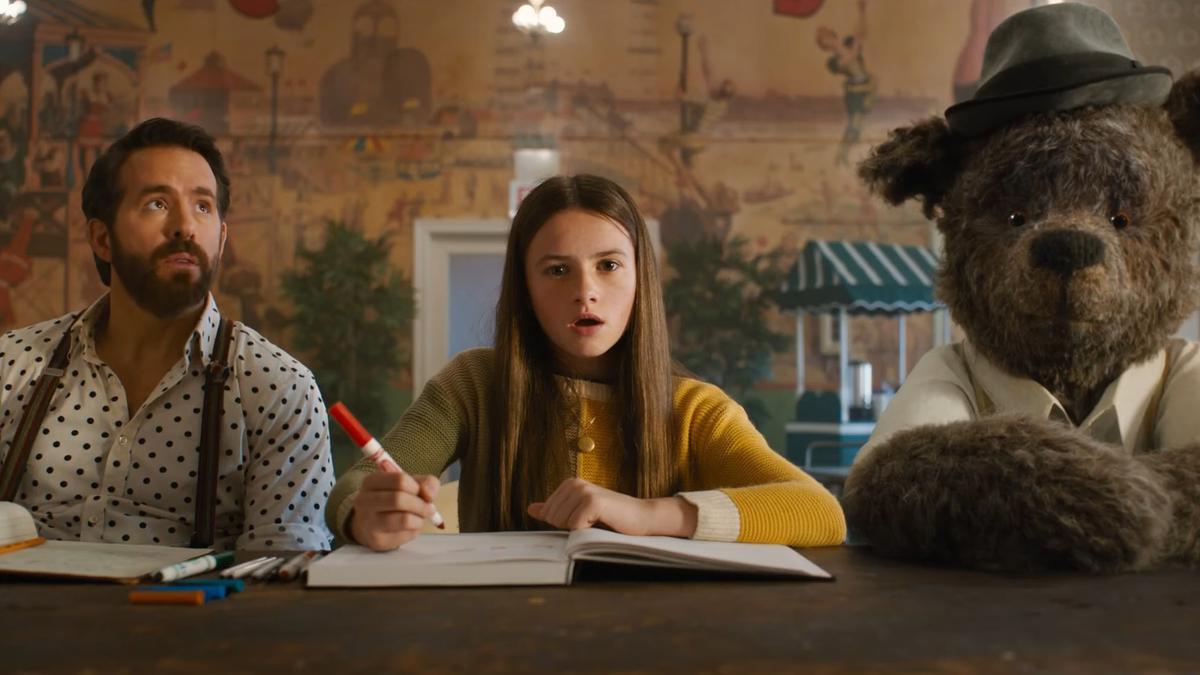
In John Krasinski’s IF, the boundless frontier of childhood imagination takes center stage, yet the film struggles to capture the genuine wonder it aims to celebrate. While the premise of bringing one’s childhood imaginary friends to life shows promise, IF falters in executing Krasinski’s whimsical vision.
The story revolves around Bea (Cailey Fleming), a 12-year-old grappling with the impending loss of her father (Krasinski), who faces life-threatening surgery. This personal crisis is compounded by the recent death of her mother, situating Bea in a predictably susceptible state of mind, making her vulnerable to her mind’s creations swooping right in. When Bea discovers her ability to see people’s imaginary friends—termed “IFs”—she is thrust into a fantastical world guided by her neighbour, Calvin (Ryan Reynolds).
IF (English)
Director: John Krasinski
Cast: Cailey Fleming, Ryan Reynolds, Steve Carell, Phoebe Waller-Bridge John Krasinski, Fiona Shaw, Alan Kim
Run-time: 104 minutes
Storyline: After discovering she can see everyone’s imaginary friends, a girl embarks on an adventure to reconnect forgotten ‘IF’s with their pals
Fleming, having grown up from her days in the post-apocalypse of The Walking Dead, would have found the colourful CGI-rendered fantasia of IF a tamer environment to say the least. Yet, even the remarkable upcoming star’s spunk and vulnerability is tethered to a narrative that often feels more like a school play than a Hollywood production.

Reynolds delivers his signature brand of sardonic charm, but his constant state of exasperation quickly wears thin. The physical comedy (which usually involved tripping over an invisible IF) lands with a thud more often than not, with so much more to Reynold’s character left to the imagination.
The IFs themselves, including the fluffy Blue (voiced by Steve Carell), a creature that seems to have wandered off the set of Monsters Inc, the wide-eyed Blossom (Phoebe Waller-Bridge), and a whole bunch of outlandish, idiosyncratic creatures come off just a tad more unsettling than the film would like you to believe. For all the hype Krasinski drummed up about the film’s stellar voice cast, most characters are barely explored and feel more like glorified cameos. You could tell me Blake Lively, Awkwafina, Bill Hader, Matthew Rhys and Keegan-Michael Key were involved, but I’d sooner believe I imagined them.

The cast of imaginary friends (“IFs”) in a still from ‘IF’
However, amidst the crowded mediocrity of the voice cast, the unmistakable standout is the gentle, inviting presence of Louis Gossett Jr., who voices a wise old teddy bear. A sunset sequence on the dock of the pier emerges as the film’s most poignant moment, beautifully elevated by Gossett Jr.’s heartfelt performance.
Set in the nostalgia-saturated 1990s, IF appears to be longing for the days before smartphones supposedly zapped our collective imagination. However, the era’s trappings—think suspenders and analog gadgets—feel more like a desperate plea for authenticity than genuine context for worldbuilding.

The film’s central conflict offers a metaphor ripe for exploration. Yet, Krasinski’s script fails to delve into this premise with any real substance. The narrative posits that these IFs can only find purpose by reconnecting with their original creators or finding new children to imagine them. The idea, while touching on the obvious themes of loss and reconnection with one’s inner child, is inconsistently developed over the course of the film.
Blue’s offhand remark about IFs disappearing when forgotten is a hint at a more profound storyline, but the film quickly abandons this thread. The IFs’ existence, caught between the realms of forgotten dreams and persistent childhood nostalgia, is never fully unpacked, leaving a wealth of narrative gold unmined.

Ryan Reynolds and Cailey Fleming in a still from ‘IF’
Despite these ‘could-have-beens,’ IF occasionally sparkles when it explores adults reconnecting with their childhood selves. Fiona Shaw’s insistence that nobody wants to watch an “oldy” like her dance is delightfully contradicted by her beautifully shot ballet sequence, brimming with regret and rediscovered joy. Sadly, it feels like that’s all the film had to offer on that front, with Bea’s less convincing adventure hogging the spotlight for the most part.

Krasinski, who struck gold with A Quiet Place, seems to have lost his touch here, unable to find the right blend of heart and humour. The result is a film that feels both overly sugary and sluggish, never quite capturing the effervescent spirit it seeks to celebrate. Even the seasoned heartstring-tugger Michael Giacchino’s valiant attempts to infuse the film with a sense of melodic wonder can only do so much heavy-lifting to mask the film’s disjointed storytelling.
Despite its occasional flashes of sweetness, IF’S lack of depth makes it more of a half-hearted daydream than a vivid adventure. Perhaps Krasinski should stick to his terrifying, sound-sensitive imaginary friends than the cute and cuddly ones.






